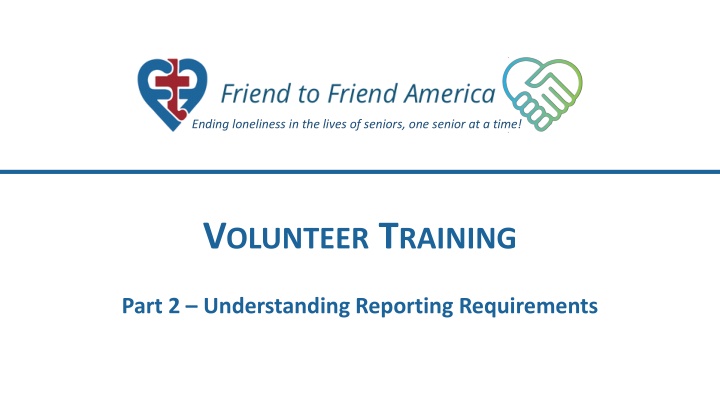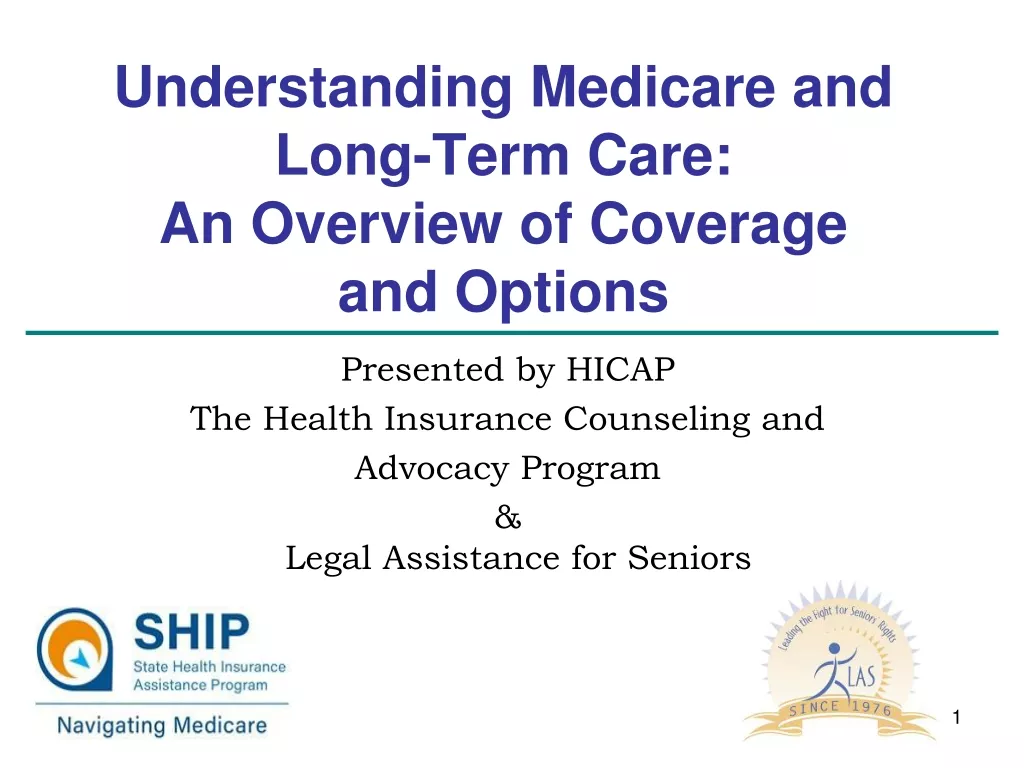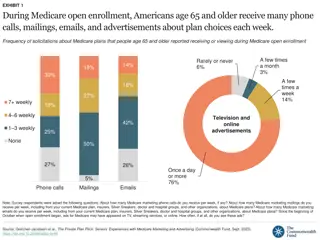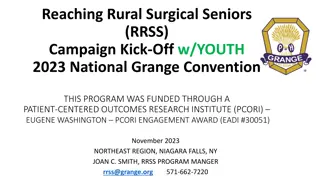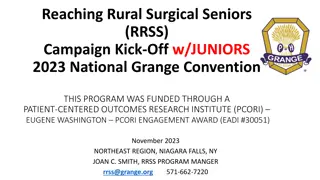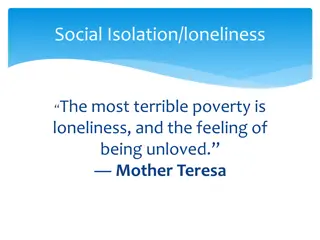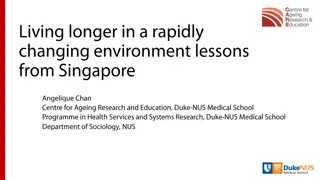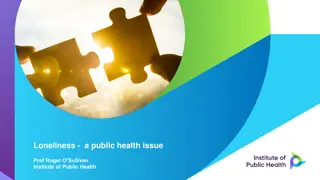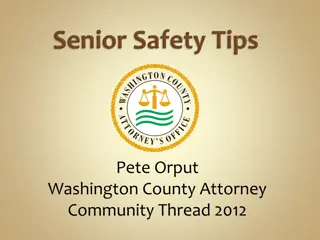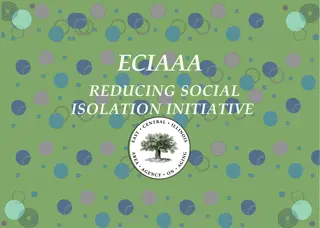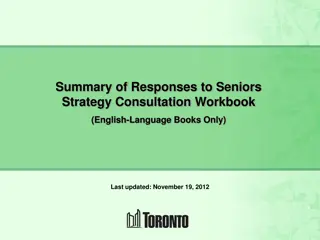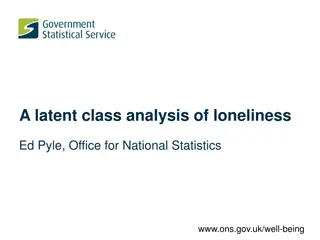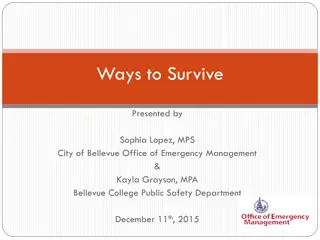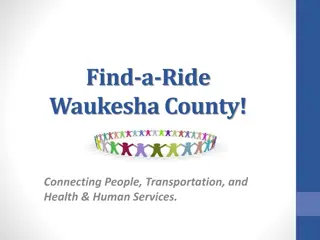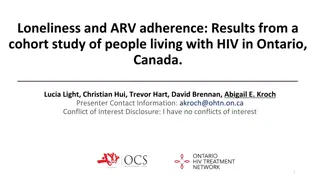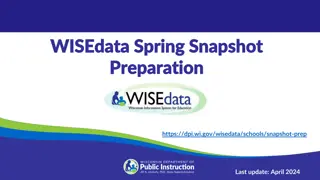Reporting Requirements for Ending Loneliness in Seniors
Understanding who needs to report cases of abuse, abandonment, neglect, or financial exploitation of vulnerable adults, and how to make reports in Washington State to protect seniors from loneliness and harm.
Download Presentation

Please find below an Image/Link to download the presentation.
The content on the website is provided AS IS for your information and personal use only. It may not be sold, licensed, or shared on other websites without obtaining consent from the author.If you encounter any issues during the download, it is possible that the publisher has removed the file from their server.
You are allowed to download the files provided on this website for personal or commercial use, subject to the condition that they are used lawfully. All files are the property of their respective owners.
The content on the website is provided AS IS for your information and personal use only. It may not be sold, licensed, or shared on other websites without obtaining consent from the author.
E N D
Presentation Transcript
Ending loneliness in the lives of seniors, one senior at a time! VOLUNTEER TRAINING Part 2 Understanding Reporting Requirements
Who reports and what are they reporting? Who reports and what are they reporting? Mandatory Reporters are professionals identified by law who MUST make a report if they have reason to believe that the abuse, abandonment, neglect, or financial exploitation of a vulnerable adult has occurred. Permissive Reporters include everyone who is not a Mandatory Reporter. 7 of 10 seniors never have a visitor. Washington State law encourages persons other than Mandatory Reporters to make a report when they have reason to believe that abuse, abandonment, neglect, or self-neglect, is, or has, occurred. The phone number for reporting is 1-800-562-6078.
Who is a Mandatory Reporter? Who is a Mandatory Reporter? Employees of the Department of Social and Health Services (DSHS) Law Enforcement officers Social workers Professional school personnel Contracted Individual Providers caring for a DSHS client 7 of 10 seniors never have a visitor. Employees of social service, welfare, mental health, home care, hospice, home health, adult day care, and adult day health agencies Owners or employees of nursing homes, boarding homes, or adult family homes Health Care Providers (such as nurses and doctors) subject to Title 18 RCW Christian Science practitioners
Who is a Vulnerable Adult? Who is a Vulnerable Adult? By law, a vulnerable adult is any one of the following: An adult with a developmental disability per 71A.10.020 An adult with a legal guardian per 11.88 RCW An adult living in a long-term care facility (an adult family home, boarding home or nursing home) 7 of 10 seniors never have a visitor. A person 60 years of age or older who lacks functional, physical, or mental ability to care for him or herself An adult living in their own or their family's home who is receiving services from an agency or contracted individual provider An adult self-directing their care per law (74.39.050 RCW)
What if I witness abuse or suspect What if I witness abuse or suspect that my Friend is being abused? that my Friend is being abused? To report abuse or neglect of a vulnerable adult in Washington State: If the person that you suspect is being abused or neglected is living in a nursing home, boarding home, or adult family home, call the Complaint Resolution Unit toll-free hotline at 1-800-562-6078. 7 of 10 seniors never have a visitor. If the person you suspect is being abused is living in their own home or somewhere other than a residential care facility, contact your county s Adult Protective Services (APS) office.
Should I call 911? Should I call 911? If it is a life-threatening event, call 911! Stay on the line and if possible, with your Friend, until help arrives. Your safety is paramount to us do not put yourself in harm s way. Immediately make a report when you have reasonable cause to believe that abuse, 7 of 10 seniors never have a visitor. abandonment, neglect, or financial exploitation occurred to a vulnerable adult. Mandatory Reporters must also make a report to law enforcement if they suspect that a vulnerable adult has been sexually or physically assaulted, or if they have reasonable cause to believe that an act has caused fear of imminent harm.
What do the legal references mean? What do the legal references mean? Reasonable cause to believe means it is probable that an incident of abuse, abandonment, neglect, or financial exploitation happened. Probable means that, based on evidence or information readily obtained from various sources, it is likely the incident occurred. 7 of 10 seniors never have a visitor. Reason to suspect means it is possible that an incident of sexual or physical assault occurred. Possible means that, based on information readily obtained from various sources, the incident could have happened.
What information should I include What information should I include in my in my report? report? The more details you provide, the more you can assist the vulnerable adult. Name and birthday of the victim Address and telephone number Current casemanager (if there is one) 7 of 10 seniors never have a visitor. Name of perpetrator Allegation (what is the abuse and what happened) Name of alternatedecision-maker or other interested individuals
Can I remain anonymous? Can I remain anonymous? You don t have to, but you re encouraged to leave your name and phone number so the APS/CRU intake worker can call you to obtain more information. The additional information you give may be what s needed to protect the vulnerable adult. If you re a Mandatory Reporter, APS/CRU documents your name and phone number as proof of your fulfillment of your obligation by law to report the abuse of 7 of 10 seniors never have a visitor. Vulnerable Adults. Your name as a reporter is confidential unless: There is a judicial proceeding. You consent to the disclosure of your identity; or The law requires DSHS to share the information.
